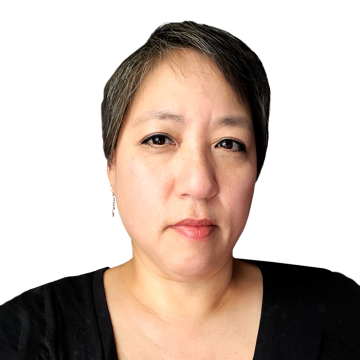Kim Park Nelson
2023 Bush Fellow

Kim Park Nelson views labor unions as key pathways for creating racially equitable and inclusive communities. A Korean adoptee and professor of ethnic studies, she has contributed foundational scholarship to build the field of critical adoption studies. She also has led transformation in her own faculty union. She observes that while many unions want to increase diversity within their governance structure, they lack actionable plans to do so. She wants to leverage her success leading change to help people from marginalized backgrounds build power in all types of work settings. She believes cross-union coordination around shared racial equity goals can develop new leaders and opportunities. To realize this vision, she will take time to study unions nationwide that have had success with racial justice transformation. She will also seek formal training in facilitation and intercultural mediation and mentoring from Asian American women and other leaders of color in unions.
What has informed your approach to leading change in your community?
I am deeply influenced by the critical work in ethnic studies, particularly Asian American studies. I have always practiced community-based movement work. I’m deeply committed to being accountable to the people I work with. I believe those most impacted by the change you are working towards need to be part of directing that change.
Who are your role models and why did you choose them?
This is a really complicated question for me. I have many people who are important to me, and I look up to them. I was adopted in 1971, just six years after the Asian migration exclusion ended (in 1965). Consequently, I have been unable to connect with many local Asian leaders who are older than me. So, a lot of role models have been my peers, especially in critical adoption studies. Those peer networks took the place of role models. Oddly, I really consider the activist and musician Billy Bragg a mentor because his music taught me about unions and organizing. Many well-known justice leaders were also union supporters. For instance, many people don’t realize that Dr. Martin Luther King, Jr. was a unionist. He understood there was a place for racial justice within unions.
What is your favorite quote or expression?
Nothing about us without us.